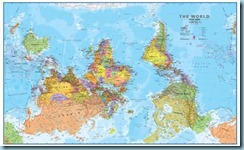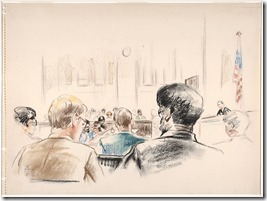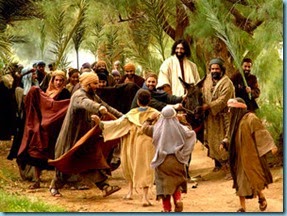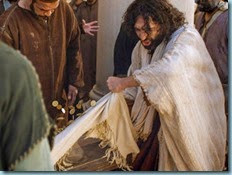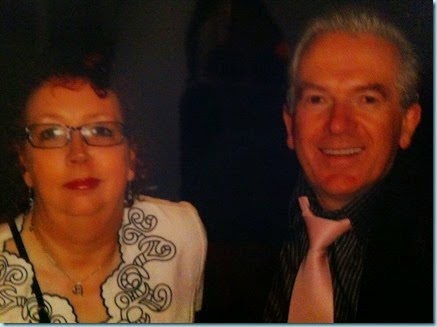Wisdom from 1 Thessalonians 4
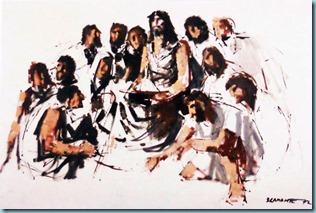 The word 'disciple' occurs over 250 times in the New Testament so it seems important enough for us to understand it. Jesus invites us to a new way of life, a life we can only fully know if we follow him. Those who follow him are called disciples. A disciple is is a learner, a pupil, an apprentice. 'The disciples were called Christians first at Antioch' (Acts 11:26). A Christian, then, is a disciple of Jesus.
The word 'disciple' occurs over 250 times in the New Testament so it seems important enough for us to understand it. Jesus invites us to a new way of life, a life we can only fully know if we follow him. Those who follow him are called disciples. A disciple is is a learner, a pupil, an apprentice. 'The disciples were called Christians first at Antioch' (Acts 11:26). A Christian, then, is a disciple of Jesus.
The chapter we are looking at is best summed up in verse one, 'How to live in order to please God.' A disciple is one who strives to do just that. If you want to live in order to please God you need to know what it will cost you. The context is very important if we are to appreciate its application today. Paul was writing to a church living in what was a hostile environment for Christians and we are beginning to experience this today in what is traditionally a broadly Christian country.
We are living in a time when principles established over thousands of years are overturned as easily it seems as a row of dominoes. Marriage is being radically redefined, and in ways that are not pleasing to God; what one actor describes as serial monogamy is being seen as a virtue; celebrity is celebrated over gifting, sacrifice, and service; gambling is part of our tax system; Christians are being sacked for sharing their faith at work, and street preachers are being arrested for simply quoting the Bible.
As Christians, what are we to make of the world's frantic flight from all that is Godly? It seems so sudden, when only a generation or two ago, such things were simply unthinkable. How are we to live in this world to please God?
Being Holy
This has been a major theme throughout the Bible. When man's sin was ripe God called Abraham out of Babylon, where he had been living as a Pagan, and set him apart. God called Abraham to live differently to those people around him, to be holy. Holy means, set apart for a special purpose, set apart for God. Abraham was told that nations would come from him, that through him salvation would come to the whole world. This was God's purpose in calling him.
So Abraham's family were different, lived differently, and looked for the day when God would fulfil his promises. Christians are in that place today, living differently, waiting for God to fulfil his promises.
When God brought the children of Abraham, the children of Israel, out of Egypt, he brought them to the foot of the mountain, gave them the law, and told them to live differently, faithfully to the God who saved them:
Observe what I command you this day. Behold, I will drive out before you the Amorites, the Canaanites, the Hittites, the Perizzites, the Hivites, and the Jebusites. Take care, lest you make a covenant with the inhabitants of the land to which you go, lest it become a snare in your midst.
You shall tear down their altars and break their pillars and cut down their Asherim
(for you shall worship no other god, for the LORD, whose name is Jealous, is a jealous God), lest you make a covenant with the inhabitants of the land, and when they whore after their gods and sacrifice to their gods and you are invited, you eat of his sacrifice, and you take of their daughters for your sons, and their daughters whore after their gods and make your sons whore after their gods. (Exodus 34:11-16)
When God's people renewed the covenant at Shechem Joshua challenged Israel:
'Choose this day whom you will serve, whether the gods your forefathers served beyond the river, or the gods of the Amorites, in whose land you are living. But as for me and my household, we will serve the LORD.' (Joshua 24:15)
The gods of Egypt, the gods of Canaan, or the LORD; choose!
The Wrong Choice
When the people of God demanded of Samuel a king to rule them, they didn't simply say, 'we want a king.' They said, 'Now appoint us a king to lead us, such as all the nations have.' (1 Samuel 8:5) God called them to be holy, but they insisted on being base, like other nations.
Their sin could not have been worse and God comforts a shocked Samuel, 'It is not you they have rejected, but they have rejected me as their king. As they have done from the day I brought them out of Egypt until this day, forsaking me and serving other gods, so they are doing now.' (1 Samuel 8:7-8)
Their sin was not simply demanding a king, their sin was rejecting the King! It is a sorry tale and it continues into the New Testament. It is a theme we find in the New Testament community of God's people, the church. Paul's letters frequently address the issue; how do we live in order to please God? It puzzles me when I come across Christians who seem to believe they can live the way of the world and still please God.
Thessalonica
We can learn a lot from Paul's letter to the church in Thessalonica. In Paul's day, the divisions between church and society were extreme and often dangerously so. He reminds his readers:
'It is God's will that you should be sanctified: that you should avoid sexual immorality; that each of you should learn to control his own body in a way that is holy and honourable, not in passionate lust like the heathen, who do not know God; and that in this matter no one should wrong his brother or take advantage of him...For God did not call us to be impure, but to live a holy life.' (1 Thess.4:3-7)
Paul even goes so far as to echo God's words to Samuel, writing, 'He who rejects this instruction [to live holy lives] does not reject man but God, who gives you the Holy Spirit.' Once again God's people must choose: the gods of this unholy society, or the Lord!
Thessalonica had much in common with Swansea:
Like Swansea, it had a population of about 200,000; like Swansea, it was a sea port and so was quite cosmopolitan; like Swansea, it sat on the main road through the province; like Swansea, it was a regional capital.
It was Greek, with a small Jewish population, and so converts came mostly from a pagan background. Everything Paul said and taught was opposed to popular thinking, and his purpose was to encourage Christians as they lived in a society hostile to Christian thinking and practice. Let me draw some parallels for you.
In the Greco/Roman world female infanticide was rife across all classes. Female infants, and deformed male infants, were regularly and legally exposed on mountains because they were not wanted. One letter from a Roman to his pregnant wife bluntly instructs, 'If you are delivered of a child [while I am away], if it is a boy keep it, if a girl discard.' Perhaps we think this kind of thing couldn't happen today.
That is what the world tells itself. We are civilised, we don't do such things. In the past 40 years over 8 million babies were aborted in the UK, the great majority because of lifestyle choices. One lion gets shot in Africa and people take to the streets, there is a lynch mob and there is talk of extradition. We need to understand that the values of the world are not the values of the kingdom.
Christian women back then enjoyed significantly higher status than their pagan counterparts. Married women were honoured and able to hold property, women held office in the church, and widows were looked after. Infant girls were valued and, where society married off girls at scandalously young ages, in Christian society the norm was marrying older, sometimes as late as 18. In a society with an epidemic of single mothers and irresponsible and absent fathers Christians must stand out again.
Public baths were to be found in such great numbers that one writer of the time wrote, 'Smyrna has so many baths that you would be at a loss to know where to bathe.' (Aelius Aristedes) Mixed nude bathing was not uncommon and, whatever your sexual orientation, sexual activity was the norm in and around these places. A society every bit as promiscuous as that is becoming a fact in our day, and we are to holy.
Three things might be drawn from this chapter of Paul's letter to help us today:
1. Whatever the world says and does, we are to live in order to please God. Like ancient Israel, we are to be a holy people. Paul says it in his letter, 'God did not call us to be impure, but to live holy lives.' (v7) We face that same choice today that they faced. The gods of this world, or the God of the Bible? This means that, on any question regarding our life choices, it is God we consult, and not public opinion.
Our values are to be God's values. Which means, as the people of God, we are to value life, every life. As did that first Christian community, building on established Jewish practice, we are to see life as precious. All mankind is made in the image of God and so we are to have high moral values that reflect that fact, controlling our own bodies, not giving in to lusts. We are to love one another, as Paul urges, 'Now about brotherly love we do not need to write to you...Yet we urge you, brothers, to do so more and more.' (vv 9-10)
How does this work out in our daily lives? Paul gives us sound advice, writing, 'Make it your ambition to lead a quiet life, to mind your own business and to work with your hands, just as we told you, so that your daily life may win the respect of outsiders and so that you will not be dependent on anyone.' (vv 11-12)
2. The witness of our daily lives is vital to the work of the kingdom, much more so than any arguments, or controversies we may get into. The 'God-fearers' of the Jewish community, those who were not Jews but who adopted many Jewish ideals and practices, were attracted by the lives of Jews they met, worked with, and saw every day. The same is true of those attracted to the Christian community. They are not won simply by arguments, but with love and a good example.
3. Finally, how we live can ultimately prove dangerous. The major theme in Paul's letter is the second coming of Jesus as Lord and King. He reassures believers that their dead loved ones, those who have 'fallen asleep,' as he put it, will not miss out but will share joy with us at the second coming. He continues, 'For the Lord himself will come down from heaven, with a loud command, with the voice of the archangel and with the trumpet call of God, and the dead in Christ will rise first. After that, we who are still alive and are left will be caught up together to meet the Lord in the air. And so we will be with the Lord forever.' vv16-17)
This is so comforting, reassuring, but it is a promise made against the backdrop of what is called the Imperial Cult. If I were to refer to, 'The God manifest...the common saviour of humankind,' you might think of Jesus. But this title was borne by the Emperor. Inscriptions abounded to, '...Caesar Augustus, Saviour of the whole human race...ruler of oceans and continents, the divine father among men, who bears the same name as his heavenly father...Liberator, the marvellous star of the Greek world, shining with the brilliance of the great heavenly Saviour.'
The word Paul used to speak of Christ's second advent is parousia, a word that was used to describe the visit of an emperor. The Emperor Caesar Augustus was hailed as, 'the Son of God.' Where we cry, 'Jesus is Lord!' Romans cried, 'Caesar is Lord!'
In Acts 17 Paul and Silas had trouble in Thessalonica when jealous Jews accused, 'These men who have caused trouble all over the world have now come here...defying Caesar's decrees, saying that there is another king, one called Jesus.' (Acts 17:7)
The people said of Caesar, 'With Caesar in charge, peace will not be driven out by civic madness or violence, or the anger that beats swords.' The Emperor bore the titles, Pax (peace) Securitas (Safety, security) Constantia (stability) Felicitas (fortune, happiness). It was against this backdrop of sycophatic flattery that Paul wrote later in this letter:
'The day of the Lord will come like a thief in the night. While people are saying, 'Peace and safety,' destruction will come on them suddenly...and they will not escape.' (5:3)
Just as was Paul's, our witness is at odds with the world and, like Paul, we may yet pay dear for it. Yet The Lord will come, when least expected, when the world cries peace. Will he find us living to please him? Will he find a holy people, leading quiet but faithful lives, loving one another before a watching world? Because that is what it means to be a disciple of the Lord Jesus Christ.




 I went to the doctor with a sore throat and came back with laryngitis; that’ll teach me! I have to stop talking – for a week! (my wife said the hardest thing would be not talking to myself which I do a lot) Hot drinks are banned (oh, my beloved tea!) plenty of cold water and rest for my throat. This is new to me and quite painful. I don’t get things like this. Arthritis and haemorrhoids are more my territory, those and a morbid distrust of builders; but that’s another story.
I went to the doctor with a sore throat and came back with laryngitis; that’ll teach me! I have to stop talking – for a week! (my wife said the hardest thing would be not talking to myself which I do a lot) Hot drinks are banned (oh, my beloved tea!) plenty of cold water and rest for my throat. This is new to me and quite painful. I don’t get things like this. Arthritis and haemorrhoids are more my territory, those and a morbid distrust of builders; but that’s another story. 

